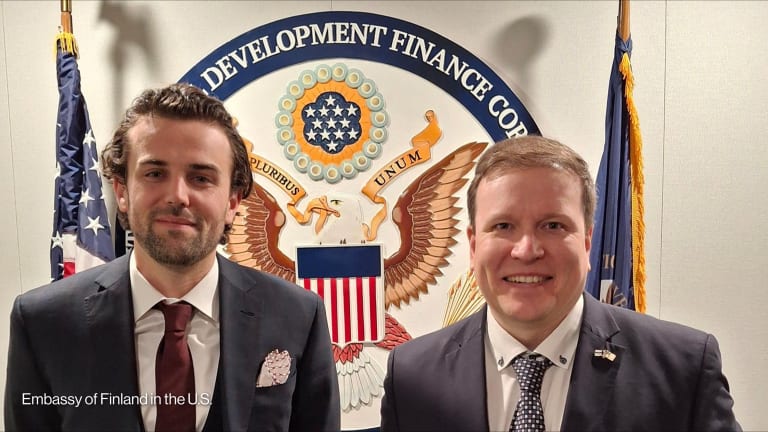
WASHINGTON — For the better part of the past year, a cloud of uncertainty has shrouded the future of the Overseas Private Investment Corporation, but its new CEO is unequivocal about one thing: he’s there to build the organization, not shut it down.
“I think OPIC has a very exciting future. I'm a builder of businesses, I'm not a lawyer or someone who's an administrator to wind something down or babysit it, I'm here to build it,” Ray Washburne told Devex in an exclusive interview.
Washburne, a Texas-based investor and businessman, also served as vice chairman of the Trump Victory Committee and chair of the transition’s commerce team. He’s been involved in private equity investing for his entire career, about 37 years, and plans to draw on that experience as he leads the U.S. development finance agency, which has a $21.5 billion portfolio of loans and guarantees in approximately 100 countries.
While he doesn’t have any experience investing in emerging markets, he has “been involved in a vast array of businesses” and many of the projects he has developed or goods he has helped manufacture “are very interchangeable with what people do in other countries.”
Washburne has been spending his early days learning about the geopolitical issues that impact OPIC’s decisions. For much of that, he’s relying on OPIC’s “very professional staff that has tremendous knowledge that I’m able to leverage off of,” he said.
Support for OPIC
While the Trump administration’s budget called for the elimination of OPIC, both the House and Senate foreign aid funding bills have included funding for the agency.
Washburne has already taken on the role of agency advocate with Congress — meeting with congressmen and senators to talk about OPIC and educate them about what the agency does.
“A lot of people within our own government don’t even know what OPIC does and so I think a lot of this job is selling OPIC's mission and just putting the word out and exposing the brand,” he said, adding that “it's been very very positively received.”
As some of his predecessors have said before him, Washburne said that criticisms of OPIC often come from people who don’t fully understand what the agency does. It seems that may be the case within the administration as well.
The administration is now “very, very supportive of OPIC,” Washburne said, adding that he wouldn’t have taken the job if he had been given any indication the agency would be shut down.
“The original budget had a lot of things zeroed out, now people are in there, everyone gets more educated on what it is,” he said. “That’s been a pivot.”
The path ahead
As Washburne begins to chart his course, some new areas of focus are emerging at OPIC.
One thing he’s decided is how he intends to do the job: as a “very outward-facing CEO.” He already has a packed schedule, meeting with country leaders, businesses, members of Congress and other development finance agencies, and he recently returned from his first foreign trip, to Kazakhstan and Ukraine.
As for areas of focus — OPIC has launched a new women’s initiative, driven by a desire by the administration, and Ivanka Trump, to focus on financing for women. The initiative will support “women-based businesses, as well as funds that are focused on women-owned businesses” he said.
In the past, OPIC has done a number of deals with other financial institutions to spur lending for underserved populations, including women. But the new initiative places a distinct focus on the issue.
In addition to the women’s initiative, the agency plans to focus on boosting its commitments in Latin America, the Middle East and Central Asia, areas that Washburne said it hasn’t been as active in recent years. In 2016, nearly 20 percent of commitments were in Latin America, while only 5 percent were in the Middle East and North Africa. During the Obama administration there was a push for greater investment in Africa, with nearly 30 percent of OPIC commitments to the continent last year. It remains to be seen if deals will continue to be funded at the same levels in the region.
Washburne and his deputies are also in the process of reviewing all the agency’s policies and procedures — and while they may make recommendations for changes, he said that he’s been impressed with staff and how the agency is run like a business.
“I haven't walked into an agency that needs reform, I've walked into an agency that we're going to try to propel forward,” he said.
Washburne and his team will also be looking at OPIC’s financing techniques and evaluating whether they are “in tune” with today’s financing world. Some of those techniques might be equity investments, which the agency is not currently authorized to make. He supports past proposals to both expand the tools that OPIC can use and provide the agency with a long-term reauthorization.
Read more international development news online, and subscribe to The Development Newswire to receive the latest from the world’s leading donors and decision-makers — emailed to you free every business day.








